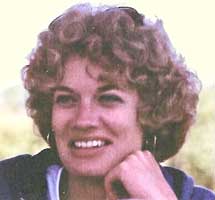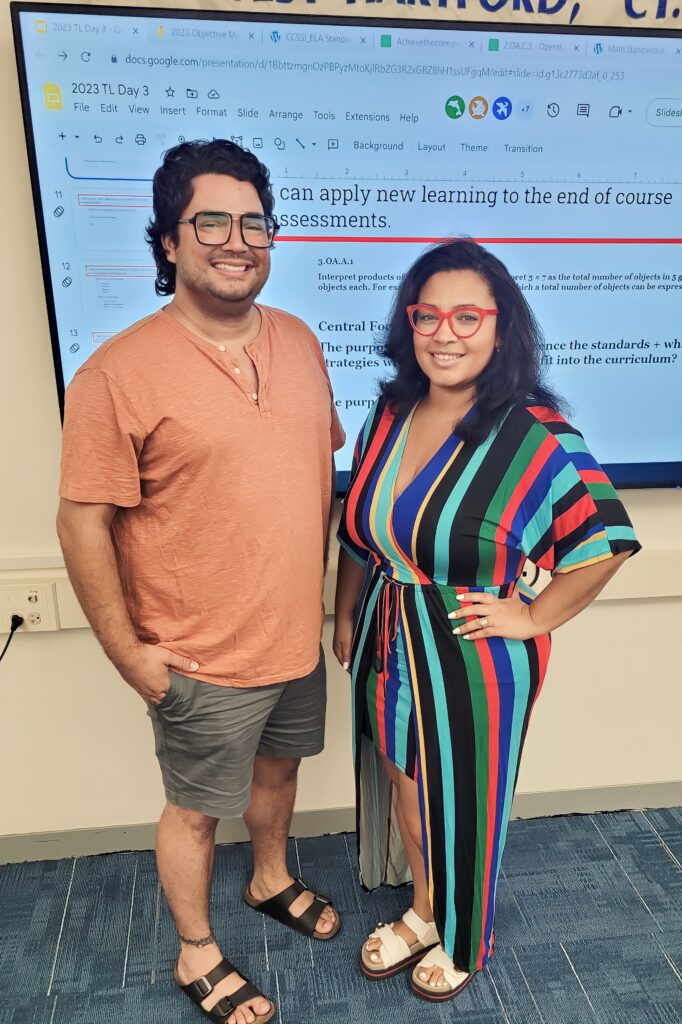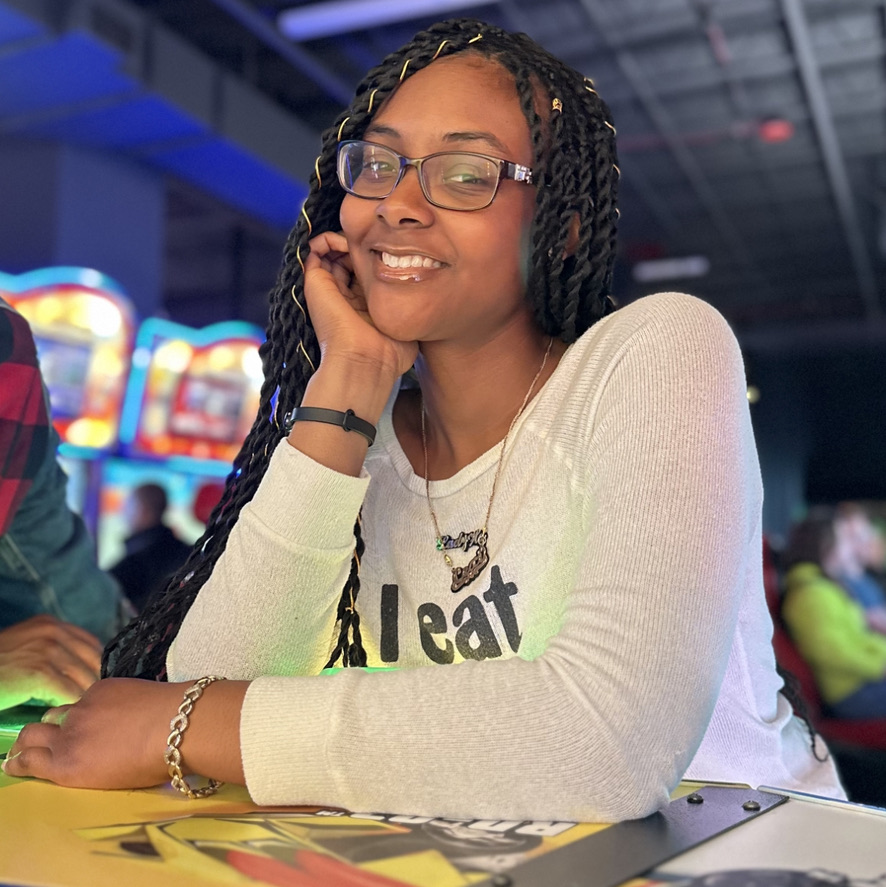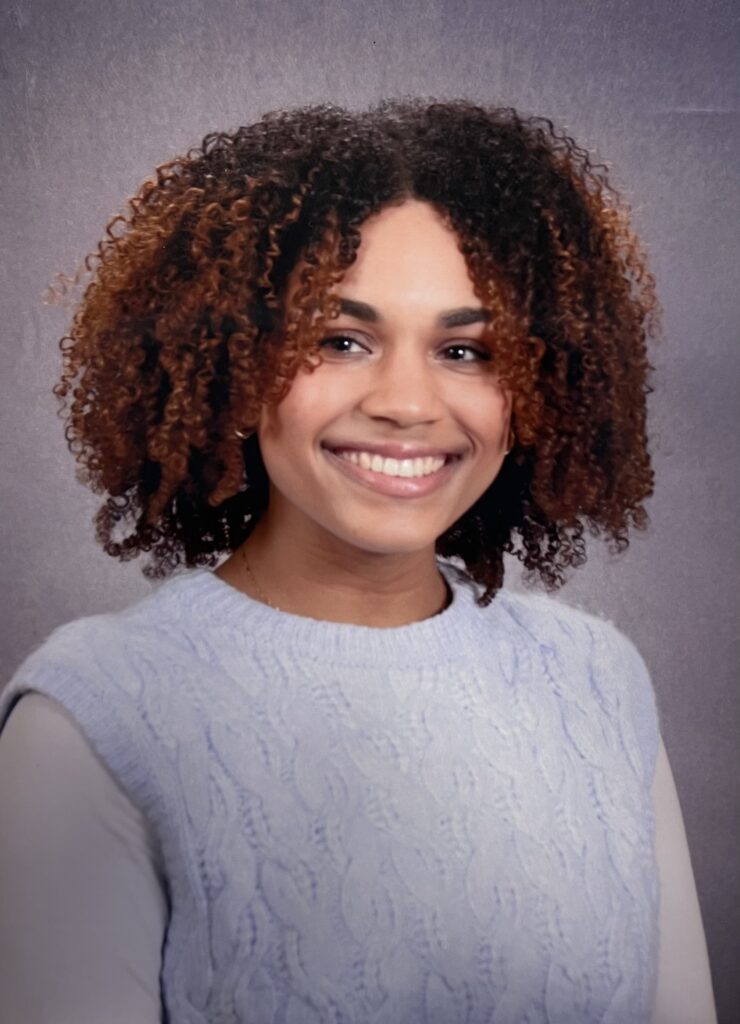Two more outstanding future teachers have joined the Alma Exley scholarship family.
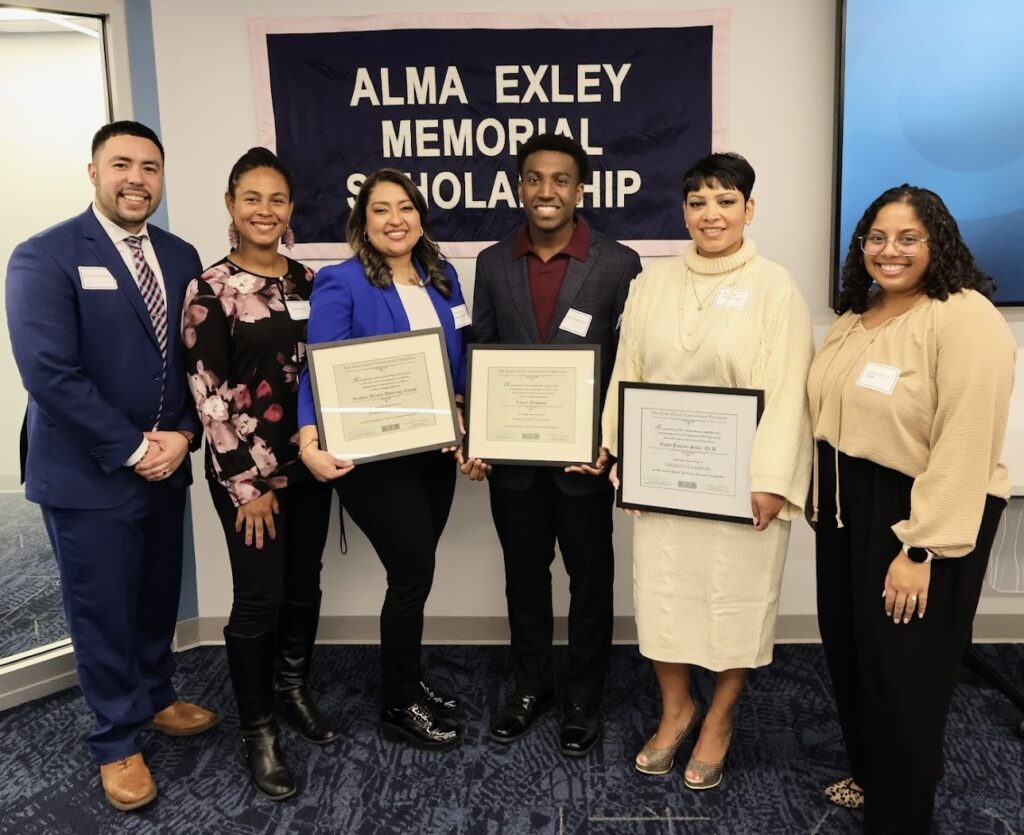
Alma Exley Scholars, from left, Orlando Valentin Jr., Sacha Kelly, Verónica Alvarenga Ramos, Carter Newman, Dr. Violet Jiménez Sims, and Ivy Horan.
Introduced at a Hybrid Event
Verónica Alvarenga Ramos of Norwalk, a senior at Southern Connecticut State University, and Carter Newman of Cromwell, a master’s degree student at UConn, were introduced to educators and supporters of the scholarship program who gathered at Charter Oak State College in New Britain and attended remotely via Zoom.
They are the 39th and 40th students to be honored since 1995. The scholarship program is fulfilling the vision of the late Alma Exley, who had been working at the state Department of Education to achieve greater educator diversity.
Diversity Champion
Dr. Violet Jiménez Sims, 2008 Alma Exley Scholar, was honored as 2025 Diversity Champion for her leadership of the state’s Teacher Residency Program, which is bringing more people of color into the teaching profession in Connecticut.
Honoring Their New Colleagues
Previous recipients honored their new colleagues by attending in-person or on Zoom: Priscilla Noriega Chessman, Tamashi Hettiarachchi, Ivy Horan, Sacha Kelly, Chi-Ann Lin, Vernon-James Riley, Dr. Violet Jiménez Sims, and Orlando Valentin Jr.
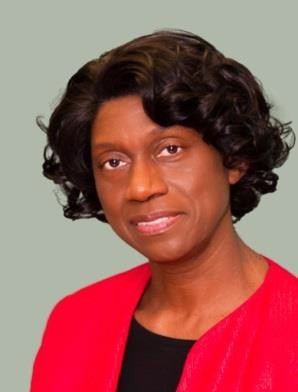
Charlene Russell-Tucker
Commissioner Highlights Diversity Initiatives
State Education Commissioner Charlene Russell-Tucker, guest speaker, congratulated the honorees and highlighted some of the initiatives intended to strengthen the educator workforce.
The Educators Rising program recruits students early in their academic careers and exposes them to opportunities that will prepare them for a career in education. The NextGen Educators program places university students in classrooms for paid-work experience to strengthen the teacher pipeline. And the Teacher Apprenticeship program ensures student teachers are paid while creating an alternate pathway for nontraditional students and career changers to become teachers.
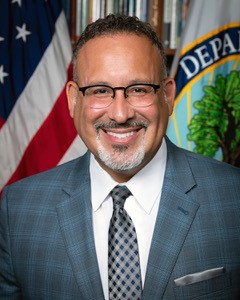
Dr. Miguel Cardona
Former-Education Secretary Cardona
Dr. Miguel Cardona, former U.S. secretary of education, congratulated the honorees via video, introducing himself as “a proud 1998 recipient of the Alma Exley Scholarship.”
“Welcome to the Alma Exley family,” he said. “It’s a special family… We learn from one another, and we support one another as we continue to grow.”
He congratulated Dr. Sims saying, “The work you do to push unapologetically for the diversification of our profession is amazing. You exemplify what we want to see in our educators.”
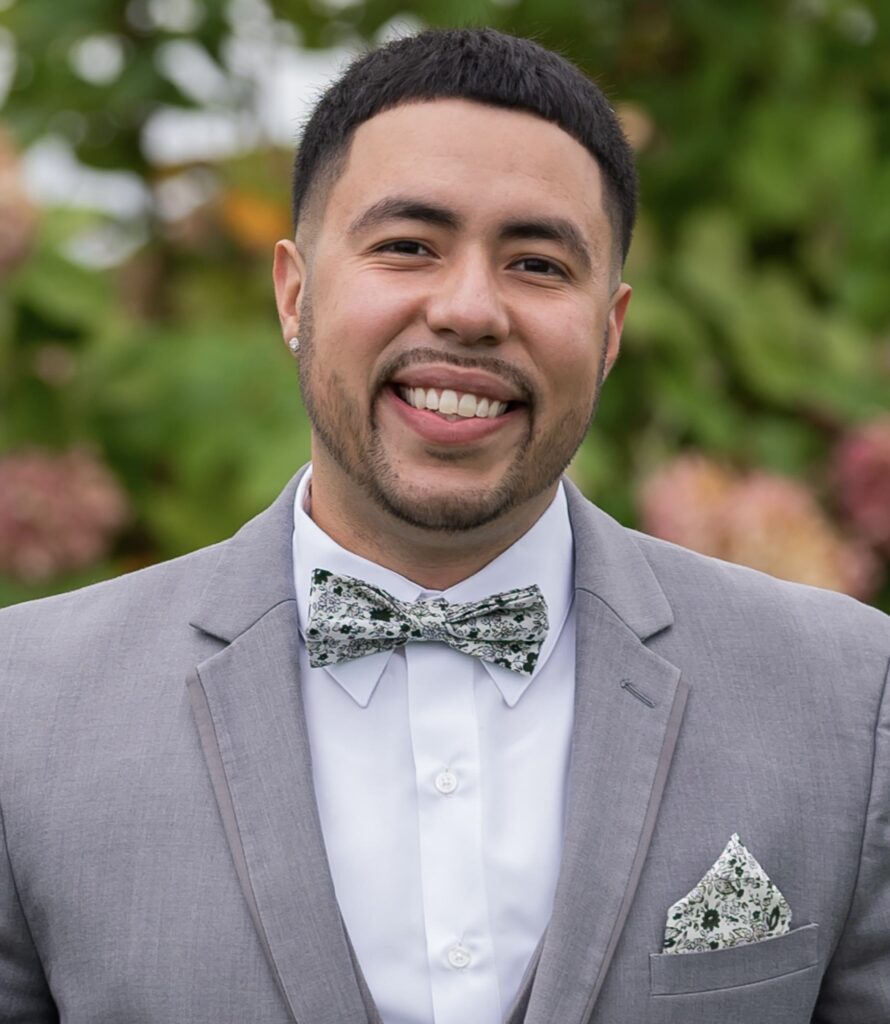
Orlando Valentin Jr.
A Distinguished Network
The master of ceremonies, Orlando Valentin Jr., 2016 Alma Exley Scholar and assistant principal at Hanover School in Meriden, said, “It’s a beautiful thing to come together to celebrate diversity in education in Connecticut.” Speaking to Ms. Alvarenga and Mr. Newman, he said, “You are joining a network of distinguished professionals who are doing amazing things at the local, state, and national levels.”
He welcomed Ms. Alvarenga’s mother, Maria del Carmen Ramos, in Spanish as she viewed the program on Zoom from El Salvador.
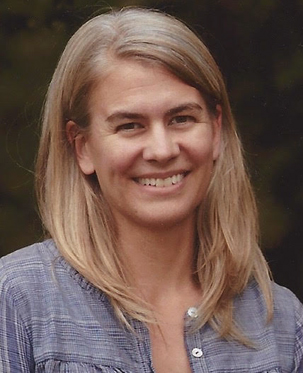
Alex Exley
A Tribute to Her Mother
Alex Exley said, “My mom’s vision gave birth to this program. She was working at the state Department of Education to bring more people of color into the teaching profession until she had to stop working when she became ill with cancer.
“She not only envisioned this program to continue her efforts to increase educator diversity, but she also had the foresight to bring in the Community Foundation of Greater New Britain, which was smart, and to put her vision in the hands of my dad, who for the last 29 years has been a dedicated champion of this program.
“She was lucky to have friends and family who remembered her by supporting this program—along with so many people who never meet her but saw value in the scholarship program and this important work. I want to thank all of you.”
Our Partner
The scholarship program is administered by the Community Foundation of Greater New Britain (insert link to website), “Where Good Begins” in Berlin, New Britain, Plainville and Southington. The Foundation works to inspire philanthropy, manage permanent charitable assets effectively, and partner to address key community issues through strategic leadership.
In Their Own Words
Because the honorees spoke so eloquently in accepting their awards, their remarks are posted here in full.
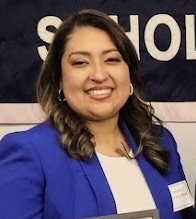
Verónica Alvarenga Ramos
I am truly honored to stand before you as a recipient of the Alma Exley Scholarship. This recognition is not just a celebration of my journey but also a testament to the power of diversity in education.
I came to the United States from El Salvador at the age of 17, not speaking English, but carrying a deep love for learning and a determination to succeed. Like many students from immigrant backgrounds, I faced challenges—navigating a new language, a new culture, and a new education system—all while working to support my family.
It wasn’t until I met a professor who shared my language and cultural background that I truly understood the transformative power of representation. That professor didn’t just teach content—she saw me, she understood me, and she made me believe that I belonged.
That experience is why I am here today—why I chose to become a bilingual educator. Now, as a student teacher and paraeducator, I see firsthand the impact of having teachers who reflect the diversity of their students. I see the way my students’ eyes light up when they realize that I speak Spanish, that I understand their traditions, and that I share their experiences. It fosters a connection that goes beyond academics—it builds confidence, belonging, and the belief that they, too, can achieve their dreams.
Diversity in education is not just important—it is essential. When students see themselves reflected in their teachers, they gain role models who empower them to embrace their identities and their potential. As an Alma Exley Scholar, I am committed to being that educator—one who uplifts, inspires, and creates a space where every child feels valued.
I want to express my deepest gratitude to the Alma Exley Scholarship Program for this incredible honor and for recognizing the importance of diversity in teaching. I also want to thank my family—my mother, my brother, my fiancé, and my children—for their unwavering support, love, and encouragement. This journey has not been easy, but their belief in me has made all the difference.

Carter Newman
I first want to express how honored and grateful I am to be a recipient of the Alma Exley Scholarship. Being recognized for such an important and valuable scholarship is something I do not take for granted. I am excited to continue my work in education—building diverse thinkers and ensuring that equity remains at the forefront of every educational space I enter.
Growing up in a school system where there were few, if any, educators or peers who looked like me, I often wrestled with feelings of imposter syndrome and questioned my place in educational spaces. Yet, my passion for learning never faded. I knew that intellectual freedom was powerful—not just for myself, but also for the many students from marginalized communities who deserved to see their worth reflected in their education. That belief has fueled my journey.
Today, in my work with students across various districts, I emphasize the importance of belonging. For the students who are presumed guilty before innocent, for those whose native language is deemed inferior to English, for those who never see themselves reflected in their education—I want them to know they each hold an unshakable place in our educational system.
No child is too young to learn about the power and beauty of diversity. And as we live in a time when these truths are being challenged, we need educators—like those in this room—who are committed to validating and uplifting the diverse identities and backgrounds of all students.
My journey in education has not been without challenges, and I’ve learned to embrace being uncomfortable. As a Black man in an educational system that has too often labeled people from my demographic as the lowest performing or underachieving, I strive to change the narrative.
From the language we use when speaking about students of color, to how we build and sustain Black boy joy, to fostering spaces where all students love their differences—this is my “why” in education. Every student I teach shares the power to redefine the narrative.
I am beyond excited to join this network of distinguished educators and professionals who share a passion for shaping an education system rooted in social justice. I extend my deepest gratitude to my parents, family, friends, and all those who have supported my educational journey. Thank you for never letting me give up and for allowing me to be authentically me. I look forward to continuing this work alongside those who not only make me a better educator but affirm that education should be welcoming for all.
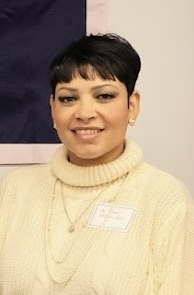
Dr. Violet Jiménez Sims
Saludos, buenas noches a todos.
I am honored to stand before you today as a recipient of the Alma Exley Diversity Champion recognition. For me, this award isn’t just a certificate or a line on a résumé, it’s also proof that the work my colleagues and I do to diversify the teaching profession is being seen and valued. I want to express my deepest gratitude to Woody Exley and his family for their tireless dedication to this scholarship’s legacy, to extending this award to a practitioner, and to everyone here who believes that every student deserves to see themselves reflected in their educators.
Verónica and Carter, congratulations and welcome to the Exley Scholarship family. When I first received the Alma Exley Scholarship in 2008, I was just beginning my journey as a teacher. I had the degrees, the passion, the crisp new teacher outfits… but what I didn’t have was a full understanding of just how much my mere presence in a classroom would disrupt people’s perceptions. Because in Connecticut, where over 88 percent of teachers are white, the idea of a brown woman in a teaching role was, for some, too much to process.
Despite dressing professionally, despite speaking “articulately,” I was asked in teachers’ lounges, “Who are you substituting for?” or “Whose para are you?” These weren’t questions from students, they came from colleagues, fellow educators who just couldn’t wrap their heads around the fact that I was, in fact, their equal.
Students, though, had a different reaction. As a teacher of Spanish for heritage speakers and English for multilingual learners, I saw my students’ faces light up when they realized their teacher spoke like them. For my Dominican students, hearing their Spanish, so often dismissed as ‘incorrect’ or ‘too fast’, spoken confidently in an academic setting was a revelation. It was as if they’d been waiting their whole lives for someone to tell them: “Your voice is valid. Your culture is valid. You belong here.” Aquí cabemos todos.
This is why representation in education matters. Because when students don’t see teachers who look like them, they internalize the message that education isn’t for them. And yet, even as we celebrate progress, we see efforts to dismantle the very initiatives that make it possible. The pushback against DEI policies and the calls to make English the official language of the U.S. aren’t just debates for think pieces and town halls. These are direct attacks on students and educators like me. They attempt to erase the richness of multilingualism, the necessity of cultural competence, and the simple truth that diversity strengthens education for everyone.
But let me be clear: We will not be erased. Just as I was supported by the Alma Exley Scholarship at the start of my journey, I now have the privilege of paying it forward. Through my work with the CT Teacher Residency Program recruiting, training, and retaining diverse teachers, I work with the best colleagues I could ask for to help ensure that the next generation of educators is more representative and more empowered to create classrooms where every student belongs. And the impact speaks for itself: in just six years, the CT-TRP has placed 135 teachers of record in Connecticut schools (over 90 percent identify as people of color), and 94 percent of them are still in the classroom after four years. A retention rate nearly double the state average. We’re not just changing the numbers; we’re also changing the culture of education itself.
And I know I’m in good company. The Alma Exley Scholarship has recognized educators who have gone on to do incredible things – like Dr. Miguel Cardona, who took that belief in representation and turned it into national policy as U.S. Secretary of Education. This scholarship isn’t just an award; it’s a movement. A movement to challenge who we see as educators, to affirm the voices of students of color, and to make sure future generations don’t have to wonder whether they belong in a classroom.
So tonight, this recognition isn’t just for me. It’s for all of us doing this work, shaking the table, and refusing to let an outdated system define who gets to lead a classroom. The Alma Exley Scholarship represents action, and I am honored to be part of its legacy.
To everyone here who believes in the power of representation and in the undeniable brilliance of our students, I thank you. It can be exhausting and feel somewhat hopeless at times, but we have to keep at it. As we say in the DR, “Tanto da una gota en una piedra hasta que hace un hoyo.” A single drop may seem small, but over time, even the hardest stone will give way. In that spirit, I ask that you continue walking this path with me. Because the work isn’t over. In fact, we’re just getting started.
-0-
